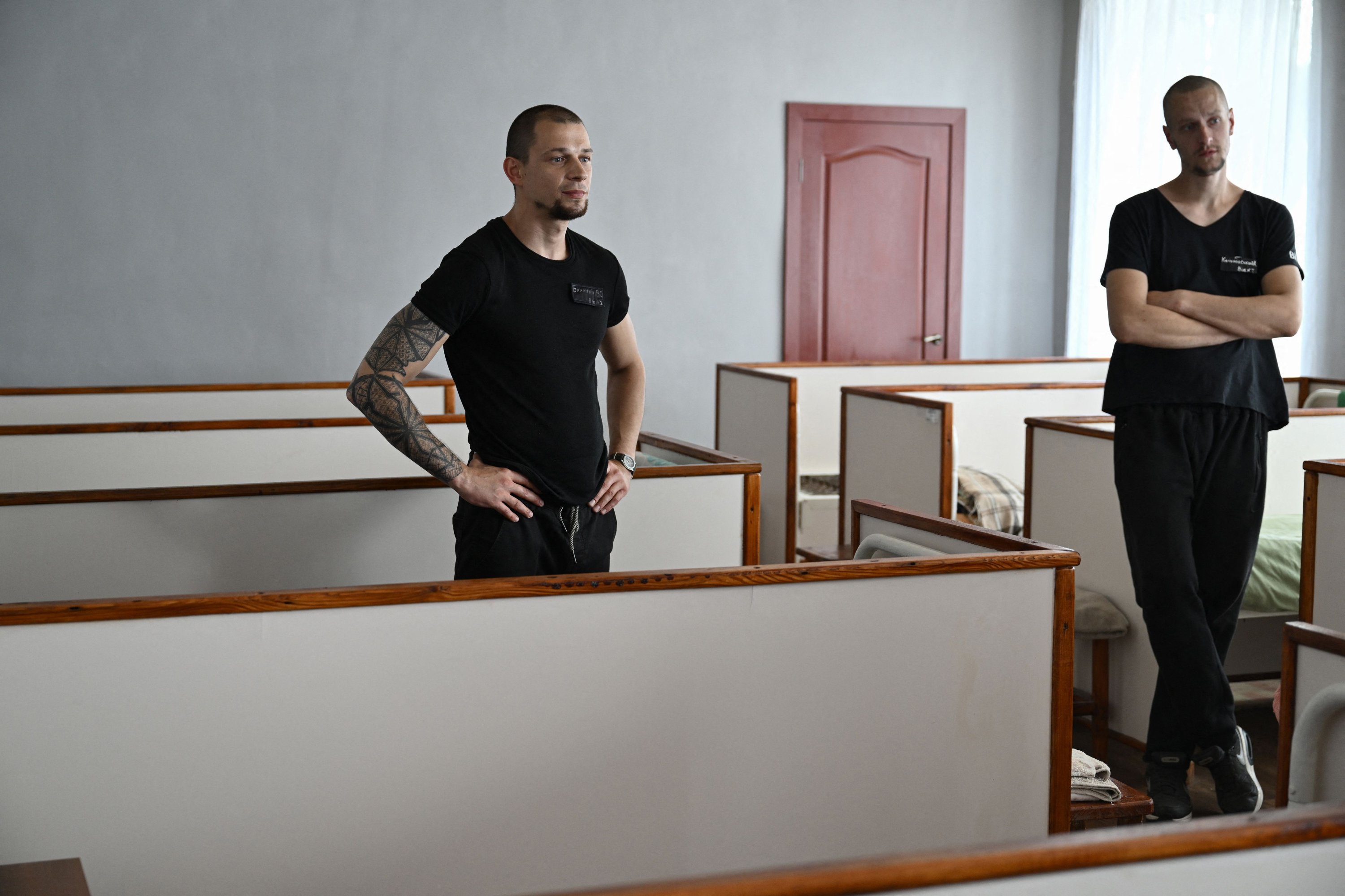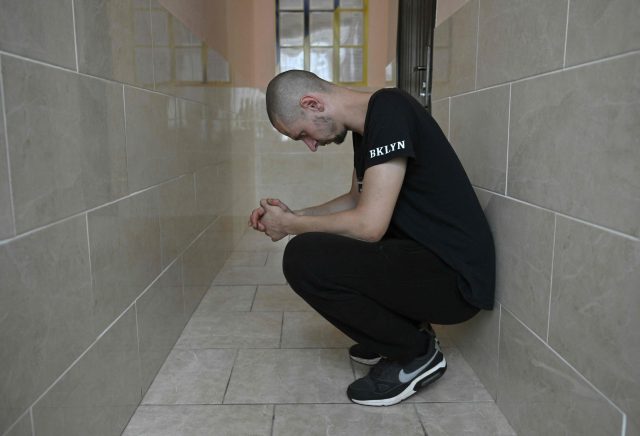Artur Kachurovsky, a 27-year-old imprisoned for theft, is among the many Ukrainian detainees seizing the opportunity to enlist in the army and confront Russian forces in exchange for amnesty.
Granted parole, he embarks on military service, knowing he can only return home once peace prevails.
“Maybe life over there will fix me, just a little bit, for the better,” he told Agence France-Presse (AFP) in Boryspil prison near Kyiv as he awaited deployment.
With Russia’s invasion dragging into its third year, Ukraine seeks to bolster its critically stretched manpower, including through tougher draft rules and a law allowing inmates to fight.
Since the bill passed in May, the justice ministry says more than 5,000 imprisoned men from across the country have applied to enlist.
The law excludes only those convicted of the most serious crimes, such as sexual violence, murder of two or more people and significant corruption.
Prisoners took Bakhmut
Earlier in the conflict, Ukrainian officials mocked Russia for recruiting inmates into the infamous Wagner mercenary group.
The practice drew comparisons with the drafting of Gulag prisoners by Soviet leader Joseph Stalin, who ordered criminals to atone for their sins in blood.
Ukrainian officials may recoil at parallels with Wagner, but the analogy is popular among some inmates.
“Prisoners took Bakhmut. Unfortunately, not guys from our side,” Kachurovsky said with a smile, referring to the eastern city’s capture by Wagner forces, largely composed of former convicts.
At least 40,000 prisoners joined Wagner during a recruitment drive led mostly by the paramilitary group’s late chief Yevgeny Prigozhin, according to U.S. estimates.
He promised convicts freedom if they survived six months of service and execution if they changed their minds.
Deputy Justice Minister Olena Vysotska insists that Ukraine’s version of the program is a fair way to achieve justice.
“We can’t find a better way to rehabilitate someone in the eyes of society than to assist the armed forces,” she said.
The Ukrainian program offers looser conditions, including the right for convicts to retract their applications or return to prison after deployment.
Oleg Omelchuk, 31, changed his mind after applying to fight and opted to remain in prison.
“You’re a convict first and foremost. That’s how it is in here, and that’s how it will be there,” he said.
He faced no repercussions for changing his mind except for some jokes from fellow inmates, many of whom still planned to enlist.
Burning with impatience
But others cannot wait to exchange life behind bars for the battlefield.
“People’s eyes are burning with impatience,” said Volodymyr Barandich.
The tattooed 32-year-old served in the army before his discharge and imprisonment for drug dealing, though he claims innocence.
To pass the time, Barandich shares basic combat knowledge with other inmates.

In the field, Roman Kyrychenko, deputy commander of the prisoners’ battalion of the 92nd Assault Brigade, praised his fighters.
He said the battalion could “perform specialized tasks in the most dangerous areas.”
A soldier from the battalion, 26-year-old Mykola Sukhotin, sentenced to 10 years for manslaughter, said he was ready for combat.
“We’ve already undergone our own schooling in psychological strength and motivation. We’re already toughened,” he said.
Not gods of war
Vitaliy Kononenko, who said he was sent to the Donetsk region after 20 days of training, disagreed.
“We’re not gods of war. We’re just normal people who happened to stumble,” Kononenko said.
Oleg Tsvily, of the NGO Protection for Prisoners of Ukraine, said feedback from inmates released to serve in the army had been mostly positive, though he voiced concerns about their treatment.
“Some commanders mistreat even ordinary mobilized people. Why would it be different for prisoners?” he asked.
Tsvily speculated that some commanders might enforce discipline more harshly for former inmates.
He also criticized certain conditions applied only to convicts, such as the absence of permissions to take leave.
Kononenko had hoped to visit his family before being deployed but was disheartened to learn he could not.
He also said trainers treated him differently and were “not letting (the former inmates) forget” their past.
He now focuses on securing necessary equipment for the 40 other former prisoners in his group – starting with a functional vehicle.
“I have to survive. I have to turn my life around. I have to show those people who point fingers at me as a ‘convict’ that I could achieve something in the army.”
And he had a message for any inmates seeking an easy way out.
“Guys, don’t come here seeking freedom; you won’t find that,” Kononenko said.
“You must have a purpose and understand what you’re doing. Otherwise, stay out of it, stay in jail.”





